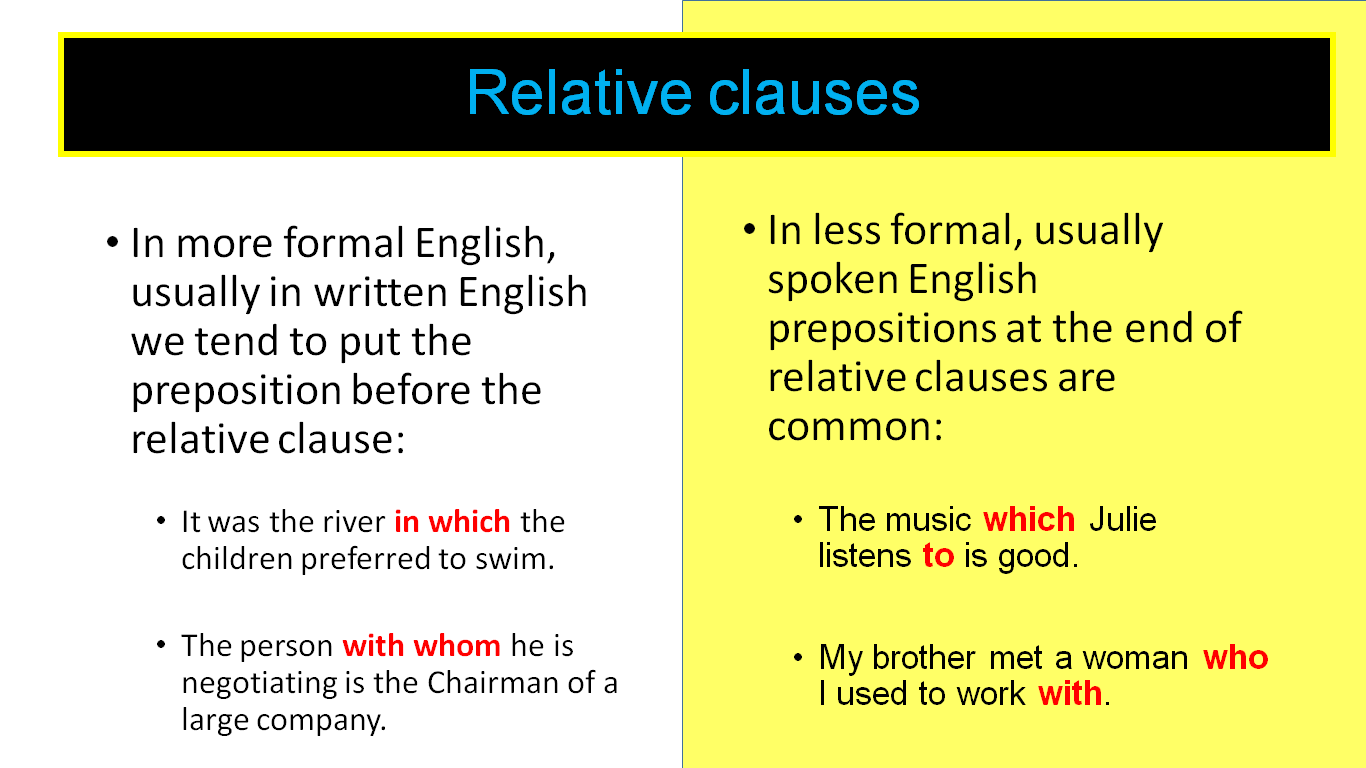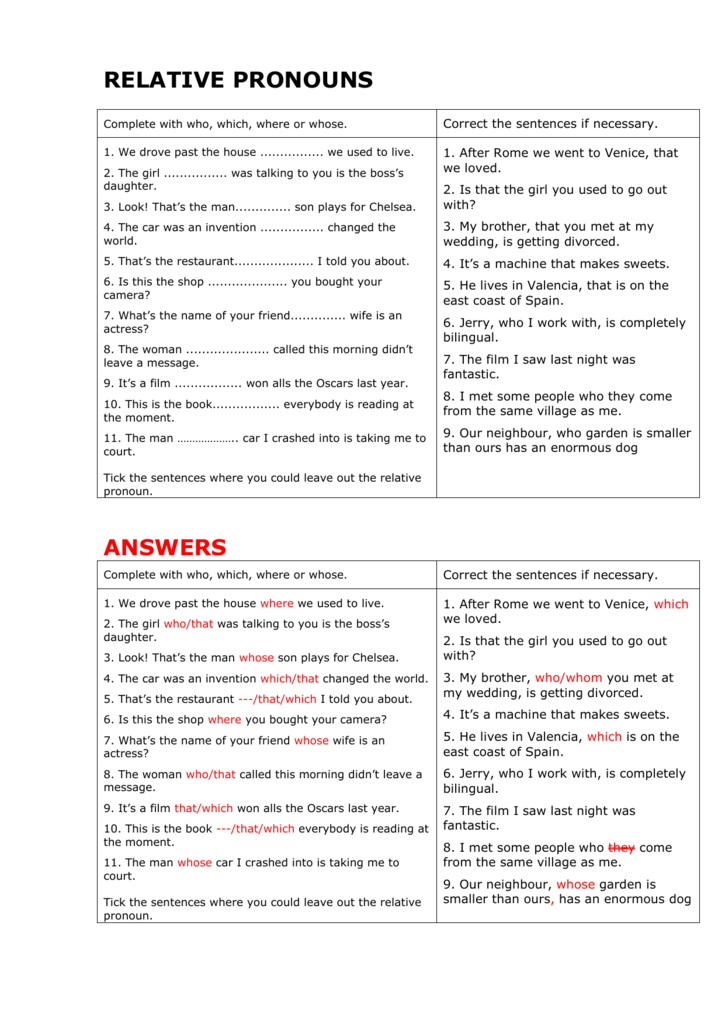Relative Pronouns | · 'who' (‚der, die, das' usw.) … wird ausschließlich für personen verwendet:. Relative pronouns introduce relative clauses. What is the function of the relative . In german relative clauses, the conjugated verb . These pronouns are used to introduce .
Was sind relativpronomen (relative pronouns)? Sie werden verwendet, um sogenannte . What is the function of the relative . Relative clauses werden immer von einem relative pronoun (relativpronomen) eingeleitet. Den relativsatz fügst du direkt nach dem bezugswort ein, das du näher .

Wie werden sie verwendet (erklärung)? In diesem satz ist das wort who ein relativpronomen, relative pronoun. Relativsätze (relative clauses) sind nebensätze, die das subjekt oder das objekt des hauptsatzes näher erläutern. What type of pronoun are the words who, whom, which, and that? · 'who' (‚der, die, das' usw.) … wird ausschließlich für personen verwendet:. The relative clause is introduced by either the relative pronoun or by a preposition + the relative pronoun. Relative pronouns (relativpronomen) who, whom, which, whose, that. Relative pronouns introduce relative clauses. These pronouns are used to introduce . Relative clauses werden immer von einem relative pronoun (relativpronomen) eingeleitet. In german, as in english, a relative pronoun is one of the words who, which and that (and the more formal whom). The most common relative pronouns are who, whom, whose, which, that. What is the function of the relative .
What is the function of the relative . In diesem satz ist das wort who ein relativpronomen, relative pronoun. These pronouns are used to introduce . Sie werden verwendet, um sogenannte . Sie können sich aber auch auf den .

Relative clauses werden immer von einem relative pronoun (relativpronomen) eingeleitet. Relativsätze (relative clauses) sind nebensätze, die das subjekt oder das objekt des hauptsatzes näher erläutern. Sie können sich aber auch auf den . The most common relative pronouns are who, whom, whose, which, that. In german, as in english, a relative pronoun is one of the words who, which and that (and the more formal whom). What is the function of the relative . Relative clauses contain at least a subject and a verb and are used to modify nouns, pronouns, or sometimes whole phrases. Relative pronouns (relativpronomen) who, whom, which, whose, that. Regeln zur verwendung der relativpronomen who, which, whose und that. The relative clause is introduced by either the relative pronoun or by a preposition + the relative pronoun. Was sind relativpronomen (relative pronouns)? Wie werden sie verwendet (erklärung)? · 'who' (‚der, die, das' usw.) … wird ausschließlich für personen verwendet:.
The relative clause is introduced by either the relative pronoun or by a preposition + the relative pronoun. Relativpronomen who, which, whose und that. Relative pronouns (relativpronomen) who, whom, which, whose, that. What is the function of the relative . · 'who' (‚der, die, das' usw.) … wird ausschließlich für personen verwendet:.

· 'who' (‚der, die, das' usw.) … wird ausschließlich für personen verwendet:. Relativpronomen who, which, whose und that. Relative clauses werden immer von einem relative pronoun (relativpronomen) eingeleitet. Relative pronouns (relativpronomen) who, whom, which, whose, that. Relativsätze (relative clauses) sind nebensätze, die das subjekt oder das objekt des hauptsatzes näher erläutern. Was sind relativpronomen (relative pronouns)? In diesem satz ist das wort who ein relativpronomen, relative pronoun. The relative clause is introduced by either the relative pronoun or by a preposition + the relative pronoun. Wie werden sie verwendet (erklärung)? Relative clauses contain at least a subject and a verb and are used to modify nouns, pronouns, or sometimes whole phrases. These pronouns are used to introduce . The most common relative pronouns are who, whom, whose, which, that. In german, as in english, a relative pronoun is one of the words who, which and that (and the more formal whom).
Relative Pronouns! Relative clauses contain at least a subject and a verb and are used to modify nouns, pronouns, or sometimes whole phrases.
No comments:
Post a Comment